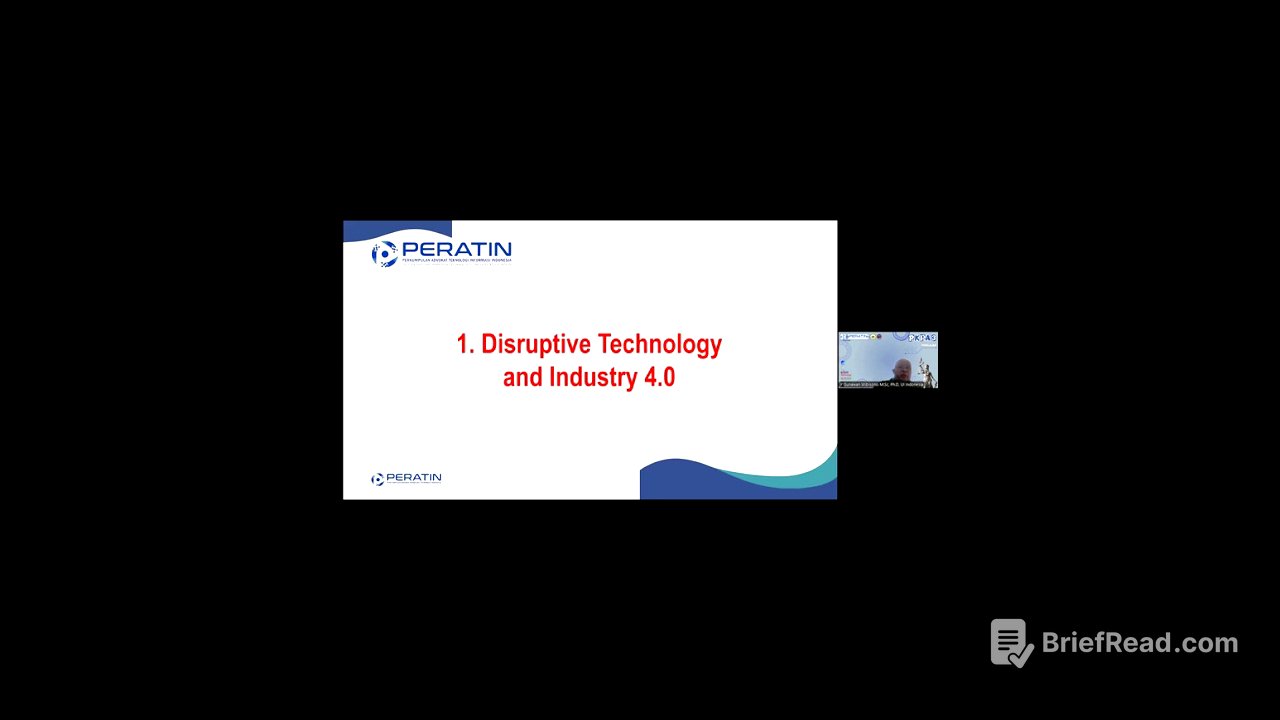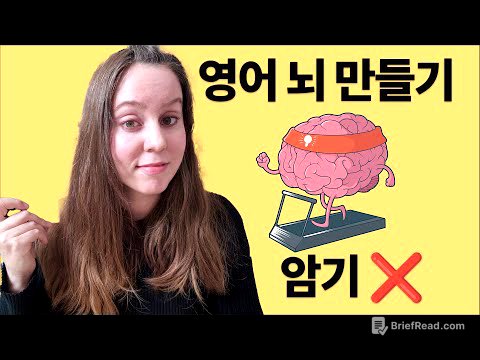TLDR;
This YouTube video features a presentation by Professor Gunawan Wibisono on the basics of ICT (Information and Communication Technology) for legal professionals, particularly those in PERATIN. The presentation covers the impact of the industrial revolution 4.0, the importance of self-protection in the digital age, the evolution of cellular technology, and the role of big data and AI in legal practice. Key takeaways include the need for legal practitioners to stay updated with technological advancements, understand data flow, and protect themselves and their clients from cyber threats.
- ICT basics for legal professionals
- Self-protection in the digital age
- Evolution of cellular technology
- Role of big data and AI in legal practice
Introduction of Professor Gunawan Wibisono [0:00]
The moderator introduces Professor Ir. Gunawan Wibisono, providing a detailed overview of his educational background and professional experience. Professor Gunawan's expertise lies in electrical engineering with a specialization in telecommunications. He has held various key positions at the University of Indonesia, including Head of the Department of Electrical Engineering and Director of Information Technology Systems. He has also published over 200 papers in international seminars and journals, focusing on technology, regulation, telecommunications, IoT, RF, and SDR technologies.
ICT and Its Impact on Legal Professionals [3:30]
Professor Gunawan discusses the relevance of ICT to legal professionals, especially those in PERATIN, emphasizing that their cases often involve IT-related issues. He notes that everyday gadgets and applications are vulnerable to legal problems, starting with user carelessness. He advises caution in using ICT facilities, such as logging out of websites and turning off devices when not in use, to avoid becoming victims of fraud or other cybercrimes.
Industrial Revolution 4.0 and Its Effects [9:33]
The discussion shifts to the industrial revolution 4.0, highlighting the increasing use of robots and automation in production processes. This shift leads to greater efficiency and precision but also changes the nature of work, with humans primarily serving as supervisors. The pandemic era has accelerated the adoption of AI and robots in daily life, impacting education and leading to a generation (Gen Z) that may lack initiative and creativity due to over-reliance on technology.
Challenges in the Digital Era [15:26]
Professor Gunawan addresses the challenges posed by the digital era, including the rapid spread of information and the rise of cybercrime. He points out that crimes like murder no longer require physical contact due to social media and online bullying. He also discusses the impact on MSMEs (Micro, Small, and Medium Enterprises), noting that many are unprepared for the digital marketplace, leading to issues like price disparities and lack of consumer protection.
Disruptive Technology and Its Benefits [22:24]
The presentation explores disruptive technology and its benefits, such as the convenience of online services like Gojek and online ticket purchases. He contrasts conventional technology, which relied on manual labor and hard skills, with modern technology that prioritizes soft skills and networking. He also touches on the potential for future employment to be based on skills rather than formal education.
Future Trends: Tesla, WhatsApp, and Internet of Things (IoT) [28:01]
Professor Gunawan discusses future trends, including Tesla's self-driving cars and the replacement of traditional phone functions by WhatsApp. He then introduces the concept of the Internet of Things (IoT), explaining how devices can communicate with each other and provide convenience to users. He provides examples such as smart homes, wearable devices for health monitoring, and systems to assist elderly parents living alone.
Internet of Things (IoT) Explained [44:46]
Professor Gunawan provides a detailed explanation of IoT, including the use of sensors and actuators for data acquisition. He emphasizes the importance of data accuracy and the various technologies used for data transmission, such as Wi-Fi and cellular networks. He also discusses the application of IoT in healthcare, particularly for remote monitoring of patients and elderly individuals.
Q&A: WiFi Security and Auto-Connect [49:33]
In a Q&A session, Professor Gunawan addresses concerns about the security of free WiFi in public areas. He advises users to turn off the auto-connect function to avoid automatically connecting to unsecured networks. He explains that free WiFi can be a way for operators to monitor user activities and collect data.
Q&A: Smartphone Security and Location Tracking [55:19]
The Q&A continues with a discussion on smartphone security, particularly regarding location tracking and WiFi usage. Professor Gunawan advises users to turn off location mode and automatic WiFi connection to prevent being monitored. He also shares his practice of blocking unregistered phone numbers to avoid unwanted calls and marketing solicitations.
Cellular Technology Evolution and 5G [1:06:39]
Professor Gunawan explains the evolution of cellular technology from 1G to 5G, highlighting the key features of each generation. He notes that while 5G offers high speed and capacity, it has not yet provided significant benefits to the average user. He speculates that 6G may focus on virtual reality (VR) applications and integration with user devices.
Legal Practice in the Age of AI and Big Data [1:21:18]
Professor Gunawan discusses how legal practitioners can stay updated with technological advancements and the opportunities for service in the ICT field. He introduces AI applications like GPT chat, which can assist in legal research and demand preparation. He emphasizes the importance of mastering data flow and being cautious when sharing information online.
Big Data and Its Impact on Society [1:27:22]
The presentation continues with a discussion on big data and its impact on society. Professor Gunawan explains how big data can be used to control the world and gain a competitive advantage. He also touches on the importance of data analysis in sports and other fields.
Digital Certification and Legal Evidence [1:32:55]
Professor Gunawan addresses the legal aspects of digital certification and signatures. He explains that valid digital signatures are recorded at authorized institutions and can be verified using provided applications. He notes that digital certificates and diplomas are easy to detect and protect, and that digitalization aims to protect users from illegal activities.
Closing Remarks and Documentation [1:39:23]
In his closing statement, Professor Gunawan offers his contact information for further consultation and emphasizes the importance of caution and thoroughness in ICT security. The session concludes with a symbolic handover of certificates and a documentation session with the attendees.
PERATIN's Special Education Program Announcement [1:43:53]
PERATIN announces a special education program for advocate profession that integrates legal knowledge and engineering, aiming to equip prospective advocates with understanding of how information technology affects the legal landscape.
PERATIN's Vision and Mission [1:46:49]
PERATIN's vision and mission is to uphold professional integrity, be active in society, build legal awareness, provide legal aid for those in need, move for digital sovereignty, and enforce the law.









